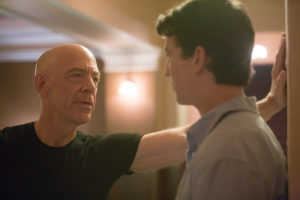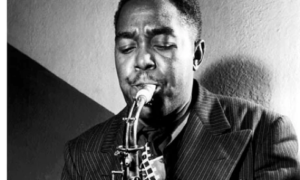I recently rewatched one of my all-time favorite movies, Whiplash. But this time, the film’s message hit home for me. Below is my reflection.
Towards the end of the 2014 film Whiplash, Andrew Neyman and Terence Fletcher sit across from each other at a jazz bar in New York to answer one question: can you go too far in the pursuit of perfection? Neyman (played by Miles Teller) is a young, determined jazz drummer and Fletcher (played by J.K. Simmons), is his famed yet abusive instructor. Throughout his mission to craft Neyman into a star percussionist, Fletcher resorts to mocking, slapping, and even hurling a chair at Neyman out of frustration during their rehearsal sessions.
But the film isn’t about Fletcher’s disturbing teaching style, nor is it about the dramatic narrative culminating in Neyman’s ultimate triumph. The purpose of Whiplash is to resurrect the often-ignored truth that the creation of genius comes at a substantial cost.
The 21st century has created a Nerf-like environment for young professionals: anything flies, I’m okay, you’re okay, feeling trumps logic, give me the most for the least amount of effort. Whiplash shatters this ideology in the most flamboyant way possible.
 Andrew Neyman forgoes friends, family, and a girlfriend in his quest for mastery. He drums until his fingers bleed. His teacher’s idea of mental training is to crush his psyche by calling him “worthless,” “faggot,” and “retard.” This teaching method is like killing a fly with a wrecking ball: you accomplish the job, but you cause a lot of unnecessary harm along the way.
Andrew Neyman forgoes friends, family, and a girlfriend in his quest for mastery. He drums until his fingers bleed. His teacher’s idea of mental training is to crush his psyche by calling him “worthless,” “faggot,” and “retard.” This teaching method is like killing a fly with a wrecking ball: you accomplish the job, but you cause a lot of unnecessary harm along the way.
Fletcher’s savagery shouldn’t be taken literally, though. Whiplash’s director Damien Chazelle, who has established a reputation as a masterful storyteller, even stated in an interview that the movie “takes it to a level that I do not condone.” Instead, Fletcher should be viewed as the personification of the cruelty and ridicule that all artists face in their creative pursuits.
Neyman’s willingness to endure this constant upbraiding is a plea for us to cultivate the kind of hardness and grit required to produce greatness. His character embodies the message that if you’re sincere about refining some craft, there are going to be aspects of it that are humbling, damaging, even terrifying. This realization is common among elite athletes, and it’s no wonder Whiplash resonated with some of today’s best.
When asked about Whiplash during an interview with Chuck Klosterman,

Kobe Bryant said, “Of course. That’s me.” Cleveland Cavaliers’ guard Kyrie Irving even wrote “Whiplash” on his shoes with a silver sharpie during the 2015 NBA playoffs (right). Whether you think identifying oneself with a provocative film is morally unacceptable or writing on your sneakers is superstitious is irrelevant.
It’s the mentality that matters.
At the jazz bar, Fletcher looks Neyman in the eye and tells him, “There are no two words in the English language more harmful than ‘good job.’” If there’s anything to take away from Whiplash, it’s this.
“But is there a line?” Neyman asks. “Maybe you go too far and discourage the next Charlie Parker.” The New Yorker movie critic Richard Brody provides some helpful commentary on this dialogue, noting that “a real artist won’t be lulled into self-satisfaction by ‘good job’ because a real artist is hard on himself, curious to learn…and to push themselves ahead.” The point is that the next Charlie Parker would never be discouraged. The talent he possesses is already present within him. All he can do is develop it, no matter how uncomfortable that may be.
The obstinacy and perfectionism portrayed by Fletcher mitigate the toxic effects of ego, yet pop culture wants to shy away from this rigidity. I’ve seen coaches hand out participation trophies and teachers change their corrective ink from red to blue in order to navigate around kids’ feelings at the cost of their potential. This is why Whiplash is valuable: it’s raw, uncut, and devoid of fluff – never leaving the viewer unclear about its purpose.
“Anyone can conduct…I was there to push people beyond what was expected of them,” says Fletcher. This push is something that Fletcher deems an absolute necessity. Otherwise, the world may be deprived of its next great musician.
Fletcher goes on to reference the story of Charlie Parker having a cymbal thrown at him after playing out of tune early in his career. The 16-year-old

was laughed off the stage, and nearly cried himself to sleep that night. But he vowed to practice relentlessly with one goal in mind: to never be laughed at again.
One would be hard-pressed to find a story like Parker’s in 2017. Instead of using negativity as fuel, teachers hold back their criticisms: “It’s okay, good try!” How am I to improve from that? This is a tragedy that the film confronts, whether the viewer wants to realize it or not.
Whiplash illustrates, with great lucidity, that artistic mastery is not the result of coddling. It is deliberately cultivated through hours of repetition and objective criticism. And although the film pushes the boundaries of taste with its aggressive dialogue and abuse, the viewer need not condone Fletcher’s actions to internalize the message: true greatness is agonizing.
Dominic Vaiana studies writing and media strategy at Xavier University. His personal articles, essays, interviews, and book recommendations are sent in his monthly newsletter.

References
Brody, Richard. “Getting Jazz Right in the Movies.” The New Yorker, 13 Oct. 2014.
Fordham, John. “A teenage Charlie Parker has a cymbal thrown at him.” The Guardian. 16 June 2011.
Kiernan, Tony. “Whiplash: Terence Fletcher The Insults.” YouTube. 18 Feb. 2015.
Klosterman, Chuck. “Kobe Bryant Will Always Be an All-Star of Talking.” GQ, 17 Feb. 2015.
McKenna, Sean. “The Perfection of Storytelling in Season One of True Detective.” SeKenna.
McMenamin, Dave. “Kyrie and Cavs learning what greatness requires.” ESPN, 13 May 2015.
Robinson, Tasha. “Damien Chazelle on what is and isn’t ambiguous about Whiplash.” The Dissolve, 15 Oct. 2014.
Rotte, Sarah. “Love for La La Land.” Sarah Rotte, 30 Jan. 2017.
2 thoughts on “‘Whiplash’ is a Plea for You to Stop Being Soft”
Comments are closed.